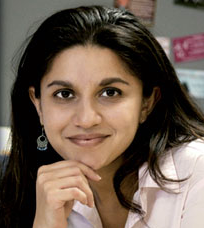
The most eminent families have entire political parties available at their disposal, and heading them means a decent shot at the best, highest and most lucrative public posts in Pakistan. So it has been in Pakistan for decades, so it likely will be for the foreseeable future at least.
In keeping with this pattern of Pakistani politics, Maryam Nawaz, the daughter of former prime minister Nawaz Sharif and the niece of the former (and future) prime minister Shehbaz Sharif, was sworn in as chief minister of Punjab on Monday.
There was something new though: while her selection was in accordance with the dynastic pattern of Pakistani politics, she will be the first female ever to hold the post in the country’s history. The new chief minister chose to wear green on the day of her swearing-in, as have the female scions of families past who have been the recipients of other firsts in Pakistani politics.
Having waited a long time for this moment, the new chief minister chose to give a lengthy speech that contained many promises. These promises deserve to be underscored since such commitments are often lost in the ether (another Pakistani pattern). The province of Punjab, Maryam Nawaz announced, would be turned into an economic hub to facilitate businessmen and businesses. While the government would carry out its regulatory duties it would be done in a way that was pro-business.
The intentions behind the promise may be commendable, but it is worth noting that one of the economic afflictions of the country is the excessive grants of subsidies to businesses and not to ordinary folk. It remains to be seen how the new chief minister will reconcile this critique with her plan of turning Punjab into an economic hub.
A number of promises were also made to the youth of Punjab, who will be able to avail merit-based scholarships and internships, and be encouraged to start tech start-ups. Maryam Nawaz also plans to provide school buses for children and an air ambulance with free medication.
As far as women are concerned (an area of special attention since the chief minister is also a woman) they will be provided with a crisis helpline and there would also be day-care centres at workplaces — both private and public workplaces. The chief minister also plans to create ‘respectable’ women’s hostels where working women can reside in safety.
In Pakistan, the high achievements of one woman simply mean that her family of men is usually powerful enough to allow her to transcend her gender.
It is not impossible for female (or male) leaders to fulfil promises if they have the will and drive to do so. In Bangladesh, Prime Minister Sheikh Hasina Wajed, also the progeny of that country’s first president Sheikh Mujibur Rahman has achieved significant economic success for her people.
According to the Bangladesh Bureau of Statistics, the share of women in the workplace increased to 42.6 per cent in 2022 from 36pc five years earlier. Promises have been made to increase the share to 50pc. It is notable that this push to increase the labour share is seen particularly among the women in rural areas.
That is not all of it; international organisations see Bangladesh as a ‘fast-track’ country that is improving its delivery of health services particularly for women. Part of this was the establishment of 16,000 community clinics and 13,000 maternity clinics. This has meant vast improvements in the maternal mortality rate in the country as well.
Admittedly, Sheikh Hasina has been around a long time, but if the total terms of dynastic rule in Punjab are considered, a good deal of time has passed and not even a fraction of the progress seems imminent. If anything, even working programmes like the Lady Health Workers Programme in Punjab were underfunded even with a Sharif at the helm.
This means that even successful programmes that were providing health services delivery in the rural areas faced major obstacles. Similarly, all sorts of hotlines are created on a seeming regular basis (likely because it is a cheap measure) but one is uncertain about how many women have been helped in any concrete way.
There was a time when the myth of one woman rising to the top was widely accepted in Pakistan. This myth holds that just because one woman reaches a top post, so too can other women achieve the same.
In Pakistan, the high achievements of one woman simply mean that her family of men is usually powerful enough to allow her to transcend her gender. In Pakistan, if you have a certain surname, you can overcome the fact that you are a woman. As a matter of fact, they allow your achievement to carry the added glamour of being the ‘first’ woman in addition to the cushion provided by their family. Add a few promises geared to improving the condition of women and their job is done.
A departure, given the current condition of the country, would be strict austerity measures for the politicians to whom cabinet positions and other top posts will be handed out by Chief Minister Maryam Nawaz in the coming days.
One crucial symbolic move could perhaps be a voluntary cessation of the budget allotted to the chief minister for personal expenditures such as those on cars, homes, travel and similar activities.
A deliberate effort towards plain non-branded garments would make the chief minister a woman who leads by example in times of complete deprivation and hardship for Punjab and the rest of the country. Setting a good example, Chief Minister Maryam Nawaz should know, is something that is both cheap and available to everybody.
Thanks Dawn
